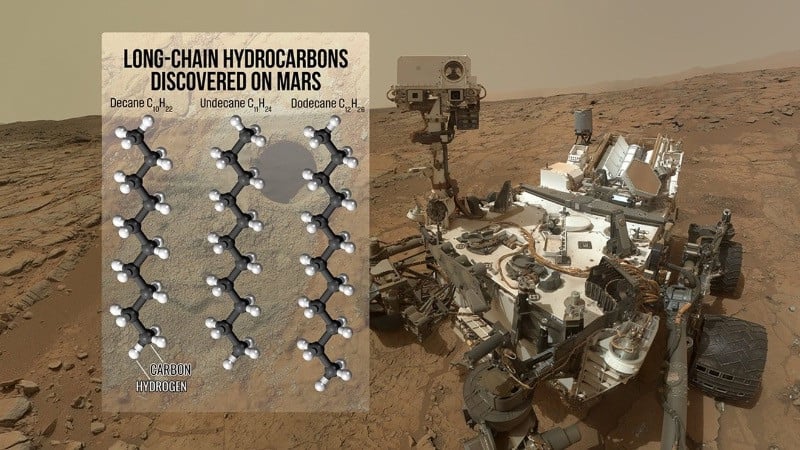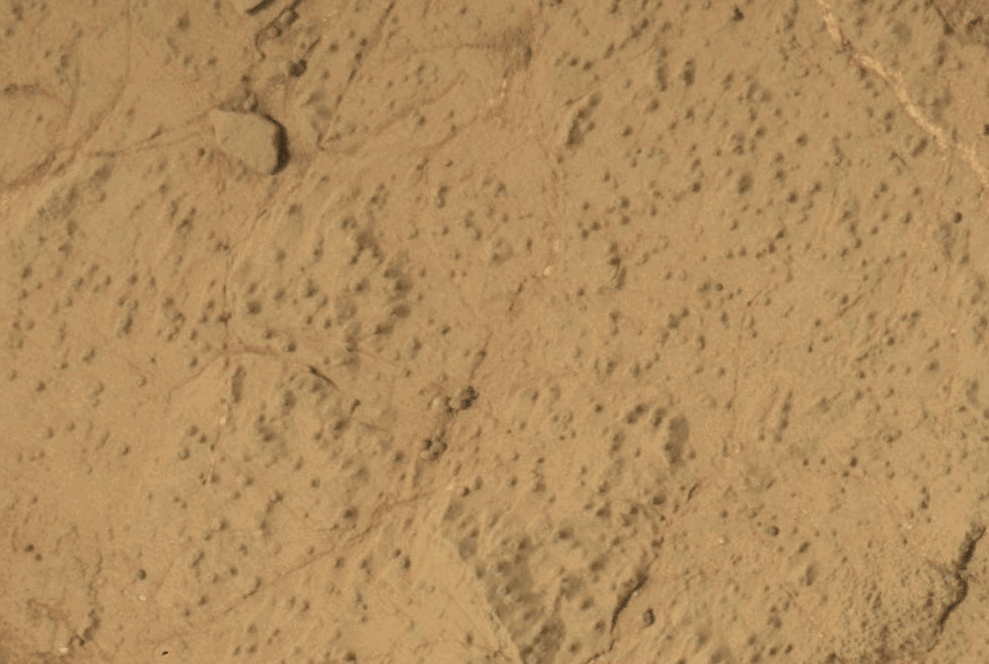
Xinhua News Agency quoted a study published in the journal Proceedings of the National Academy of Sciences stating that prebiotic chemical reactions on Mars may have advanced further than previously observed.
Scientists examined a rock sample inside Curiosity's mini-lab called SAM (Sample Analysis on Mars) and discovered the molecules decane, undecane, and dodecane. These are compounds containing 10, 11, and 12 carbon atoms, respectively, and are believed to be fragments of fatty acids preserved in the sample.
 |
| NASA's Curiosity rover drilled into a rock target called "Cumberland" on Martian day 279 (sol 279) of its mission on the Red Planet (May 19, 2013) and collected a powder sample from inside the rock. (Source: NASA) |
Fatty acids are important organic molecules on Earth, serving as the chemical building blocks of life, according to NASA.
While Curiosity's previous findings pointed to the presence of small, simple organic molecules, this discovery of larger compounds is the first evidence that organic chemistry on Mars may have evolved to the level of complexity necessary for life to form.
The Curiosity rover was launched on November 26, 2011, and landed on Mars on August 5, 2012. It is the largest and most advanced rover ever sent by NASA to the red planet.
Source: https://nhandan.vn/nasa-tau-tham-do-phat-hien-phan-tu-huu-co-lon-nhat-tung-duoc-tim-thay-tren-sao-hoa-post867453.html


































































































Comment (0)